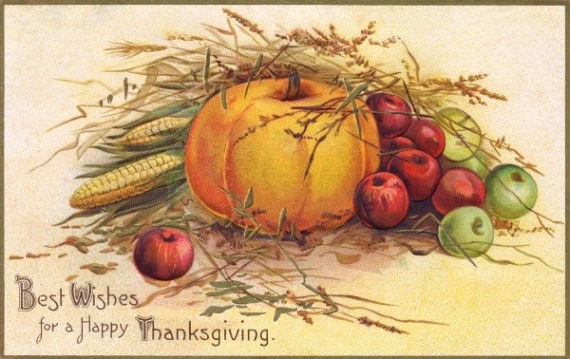
Thanksgiving in the United States is fast approaching. Family, friends, and new faces gather together. Turkey, dressing, veggies, breads, and pies make up traditional menus across the country. A time to celebrate at table with dear ones. A time to be thankful. We remember those far from home. We remember those without a home.
In the very name itself, Thanksgiving is about giving thanks.
The first Native American United States Poet Laureate writes about that table where many gather:
At this table we sing with joy, with sorrow. We pray of suffering and remorse.
We give thanks.
—Joy Harjo, “Perhaps the World Ends Here”

Gratitude can elude the human heart as easy as misplacing anything worth keeping precious in the storehouse of human virtues. Often it has to be cultivated. Sometimes it bubbles up at the most unexpected times and in the most unlikely places in a recollection long forgotten. Those are refreshing thoughts!
I happened upon beautiful words recently that speak about a found gratitude. The speaker in this poem by Robert Hayden reflects upon the overlooked sacrifices his father made for his family long ago. You can sense the raw emotions of his recall:
Sundays too my father got up early/
and put his clothes on in the blueblack cold,/
then with cracked hands that ached/
from labor in the weekday weather made/
banked fires blaze. No one ever thanked him./
. . . . . . . . . . . . . . . . . . . . . . . . . . . . . . . . . . . . . . . .
What did I know, what did I know
of love’s austere and lonely offices?
—Robert Hayden, “Those Winter Sundays”
And look at the gratitude in a few verses of a Thanksgiving poem by Hiroshima survivor and naturalized U.S. citizen Takashi Tanemori who witnessed the atomic bombing of his homeland in Hiroshima at the age of eight and the death of his family. Poet, artist, memoirist, and speaker Tanemori overcomes the debilitating cycles of vengeance and bitterness to advocate peace.
My heart fills with countless blessings:/
food, shelter, clothing and friends to be encircled./
Looking back, I see how/
my stumbling steps have become a path/
and how, on this lonely road,/
I have never been alone.
—Takashi Tanemori, “Looking into Heaven with Love and Gratitude on Thanksgiving Day November 23, 2006”
I have wondered why those who truly know emotional and physical hardship at the deepest human levels seem to appreciate the smallest blessings that might come their way. I have wondered why those without material means seem to be some of the most generous and the most grateful souls around. They are beacons of light in an all consuming world. What makes these people tick? Where does their strong sense of gratitude come from?
I have to believe it has something to do with their perception of a thing, the way one chooses to interpret any given circumstance. Transforming tragedy and suffering, poverty and injustice, loneliness and isolation into blessing, speaks of victory and the refusal to be defined by the oppression of what is negative.
Gratitude is attitude.
The poet Mary Oliver wrote about being transformed by the way she perceived hardship in a dream:
(In my sleep I dreamed this poem)/
Someone I loved once gave me/
a box full of darkness./It took me years to understand/
that this, too, was a gift./
—Mary Oliver, “The Uses of Sorrow”
I am humbled by the gratitude of others. I want to learn from their gracious spirits. I have so much to be grateful for and yet I often forget to thank God for the journey. I forget to thank those who have so deeply graced my life, past and present, alive and departed.

Wherever you happen to find yourself this Thanksgiving, I wish you abundant kindness, warmth, enough to eat, and God’s blessings. I wish you your own unique and found gratitude.
Thanks for stopping by. ♥

